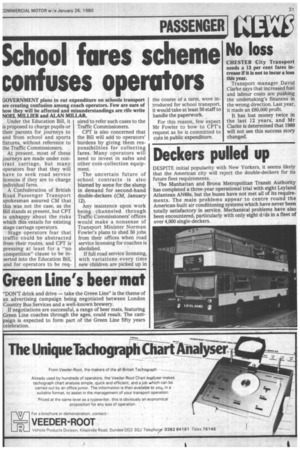School fares scheme confuses operators
Page 23

If you've noticed an error in this article please click here to report it so we can fix it.
GOVERNMENT plans to cut expenditure on schools transport are creating confusion among coach operators. Few are sure of how they will be affected and misunderstandings are rife write NOEL MILLIER and ALAN MILLAR.
Under the Education Bill, it is proposed to charge pupils or their parents for journeys to and from school and sports fixtures, without reference to the Traffic Commissioners.
At present, most of these journeys are made under contract carriage, but many operators fear that they will have to seek road service licences if they are to charge individual fares.
A Confederation of British Road Passenger Transport spokesman assured CM that this was not the case, as the Bill stands at present, but CPT is unhappy about the risks which this entails for existing stage carriage operators.
Stage operators fear that traffic could be abstracted from their routes, and CPT is pressing at least for a "no competition" clause to be inserted into the Education Bill, and for operators to be req uired to refer such cases to the Traffic Commissioners.
CPT is also concerned that the Bill will add to operators' burdens by giving them responsibilities for collecting fares. Many operators will need to invest in safes and other coin-collection equipment.
The uncertain future of school contracts is also blamed by some for the slump in demand for second-hand double-deckers (CM, January. 12).
Any insistence upon work being channeled through Traffic Commissioners' offices would make a nonsense of Transport Minister Norman Fowler's plans to shed 50 jobs from their offices when road service licensing for coaches is abolished.
If full road service licensing, with variations every time new children are picked up in the course of a term, were introduced for school transport, it would take at least 50 staff to handle the paperwork.
For this reason, few expect Mr Fowler to bow to CPT's request as he is committed to cuts in public expenditure.












































































































































